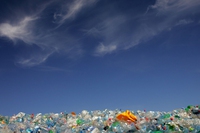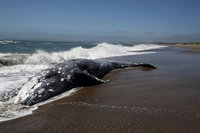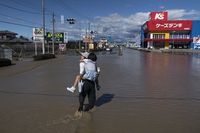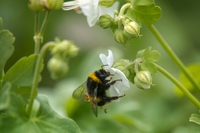
Climate change is the biggest health threat of this century
Reducing emissions means protecting our health: if unmitigated, climate change will pose increasingly severe challenges to human well-being.
Reducing emissions means protecting our health: if unmitigated, climate change will pose increasingly severe challenges to human well-being.
Plastic pollution is airborne too. Microplastics are being carried across continents by the wind, as a recent study reveals.
A study indicates that the zoonotic origins of coronavirus may have been favoured by global warming’s impact on the conditions for bat habitats.
The decline in grey and humpback whales in the Pacific and Atlantic Oceans has been traced to food shortages caused by rising ocean temperatures.
Molecules that eat up plastic waste, including PET bottles, may soon become widely used as scientists leap ahead in developing new super enzymes.
A new study raises the alarm on the Great Barrier Reef: in 25 years half of its corals have been lost, mainly due to climate change.
Thousands of plant and fungi species may be at of risk extinction even before being discovered by scientists, according to a report by Kew Gardens.
Helsinki Airport has begun implementing a Covid-19 test which is both noninvasive and simple. The exceptional nurses involved are dogs.
Typhoons will become more intense as a result of global warming, but Japan must do more to prepare itself for the perfect storm.
Bumblebees can help plants flower more quickly. However, pesticides, parasites and climate change are putting this key species in serious danger.








